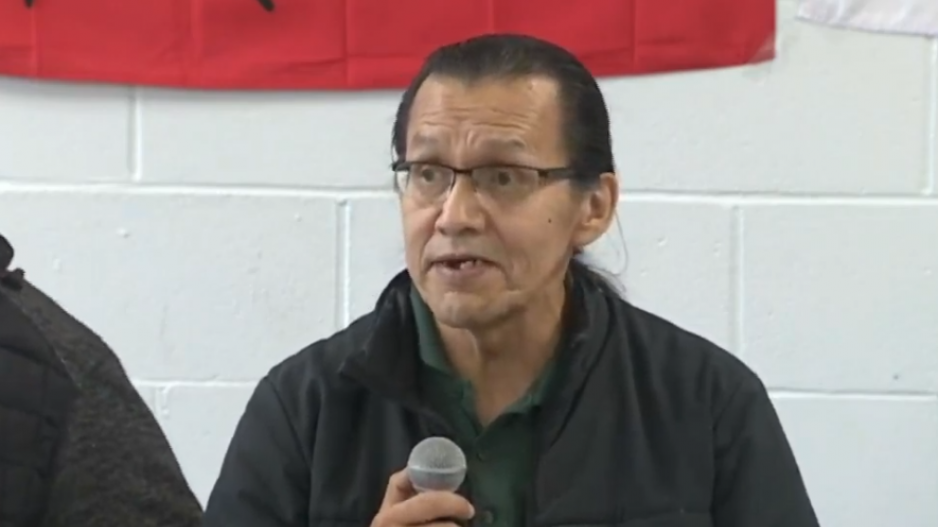Anyone hoping that Wet’suwet’en hereditary chiefs who met with Tyendinaga Mohawks in Ontario this week were there to broker an end to a two-week long blockade of railways is in for disappointment.
If anything, things may have now escalated.
At a press conference this afternoon, both the Wet’suwet’en chiefs and representatives of the Tyendinaga Mohawks dug in their heels, saying a railway blockade in Ontario will not come down until two conditions are met — one of which is not on (halting the Coastal GasLink pipeline).
At a press conference this afternoon, Frank Alec (whose hereditary title is Woos), said the Tyendinaga had affirmed that they will maintain the blockade of a railway line in Ontario and only dismantle it once the RCMP have completely withdrawn from Wet’suwet’en territory in the Houston, B.C. region “and cease patrols of our lands."
“Out means out,” Woos said, adding: “We demand that all CGL activities cease within Wet’suwet’en territory while nation-to-nation talks are going.”
Only after those conditions are met will the Wet’suwet’en agree to a “nation-to-nation” meeting with provincial and federal governments, and only on Wet’suwet’en land.
But just shortly before the chiefs held their press conference, Prime Minister Justin Trudeau also held a press conference, where he appeared to close the door on any further “dialogue” with the Wet’suwet’en.
"Every attempt at dialogue has been made," Trudeau said. "But discussions have not been productive. We can't have dialogue when only one party is coming to the table. For this reason, we have no choice but to stop making the same overtures."
He said barricades that have brought railway traffic to a halt in Eastern Canada for two weeks "now must come down."
"The injunctions must be obeyed and the law must be upheld."
And earlier today, B.C. Premier John Horgan shut the door on the idea that work on the Coastal GasLink pipeline would be halted.
"The project will proceed," he told reporters in a scrum, following an address to the Greater �鶹��ýӳ��Board of Trade (GVBOT) Friday morning. "It's fundamental to our economy, fundamental to prosperity for people in the north."
In other words, Canada and First Nations could be headed for a standoff. And the last time the Mohawk people were involved in a standoff — the Oka crisis of 1990 — one police officer was killed and the region was paralyzed for weeks, after Mohawks seized the Mercier Bridge.
The Oka crisis may well be in the backs of minds of politicians and police who have been reluctant, to date, to use force to remove the blockades.
RCMP commanders have agreed to withdraw from the Morice West Forest Service Road to Houston, B.C, provided Wet'suwet'en chiefs agree to keep the service road open "to all users."
But in a press release from the Unist'ote'n, the group that has led the resistance against CGL and other pipeline projects, said the RCMP are not withdrawing as they said they would.
"Contrary to the announcement by the BC RCMP on February 20, 2020 that they are withdrawing from Wet’suwet’en territory, the BC RCMP and CIRG (community industry response group) have in fact increased harassment, made illegal arrests, increased surveillance, and monitoring of Wet’suwet’en people and their invited guests."
��



